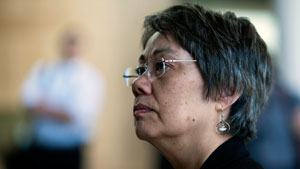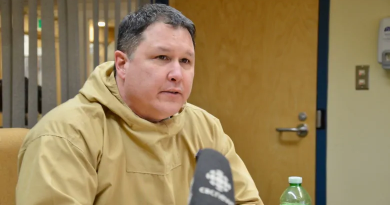Education controversy in Canada’s eastern Arctic

There’s been a lot of debate about “social promotion” in Canada’s eastern Arctic territory of Nunavut — the practice of moving kids up a grade, whether or not they’ve mastered the skills.
The Nunavut government defends the practice, and so do many education experts.
Ben Levin, a professor at the Ontario Institute for Studies in Education, said all of the research suggests that failing kids is bad policy.
“There just isn’t any reason to think that if we held more kids back, the results would get better. In fact, there’s every reason to think that if we held kids back, in the long term, results would get worse,” he said.
Levin also said that the problem isn’t with social promotion, it’s with the reason kids are falling behind in the first place.
“The social promotion debate kind of misses that and it puts us into a debate about what to do with kids who aren’t meeting the standards we want, as opposed to talking about, what do we need to do to help more children meet those standards.”
Aariak suggests concerned parents approach school, teachers
The Canadian Education Association recommends against failing students. Instead, they suggest focusing on early intervention, reading programs, summer programs or tutoring.
This past school year, parents, district education authorities, and even politicians have all spoken out against the practice of social promotion.
A recent high school graduate, Eelai Uniuqsaraq, said it doesn’t help kids succeed.
“They’ve been pushed through for so many years, so when they finally get into, like, Grade 10, where they do have to do their work, a lot of them end up dropping out because they don’t have the necessary skills,” said Uniuqsaraq.
Tracey MacMillan, the principal at Nakasuk Elementary School in Iqaluit, Nunavut’s capital city, said her teachers have many ways to teach children working at different levels so they can all work towards the same goals.
“And that they experience success and pride in the work that they’re doing in the classroom,” she said.
But it’s sometimes challenging for parents to know if their child is making the grade.
“If you have concerns about your child’s progress, approach the school as soon as possible so that it’s not prolonged,” said Premier Eva Aariak, who is also Nunavut’s Minister of Education.
Aariak said parents can bring up their concerns at parent-teacher interviews, or anytime.
While many experts say failing kids doesn’t help, they say “social promotion” only works if students get the support they need.



